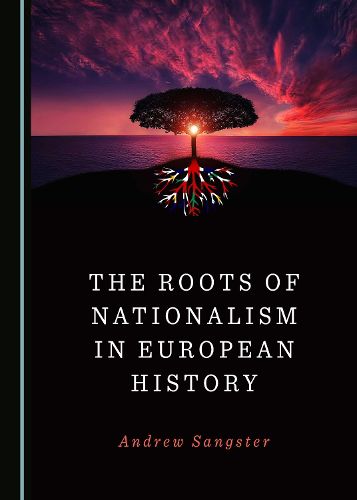Readings Newsletter
Become a Readings Member to make your shopping experience even easier.
Sign in or sign up for free!
You’re not far away from qualifying for FREE standard shipping within Australia
You’ve qualified for FREE standard shipping within Australia
The cart is loading…






This book challenges the commonly held belief that Nationalism is a recent phenomenon. It surveys European history from the tribal stage to 1989-90, and concludes with a commentary on events between 1990 and the European Elections of May 2019. During this review, it comments on the growth of nations across the European scene and the early signs of the various types of nationalism. Nationalism demands many qualifying adjectives, and this is examined as its variations occur. The study explores humanity’s propensities, especially the sense of alienation towards those who speak another language or have a different ethnicity, customs, or religious belief. In addition, it looks at humanity’s other inclinations to seek territory, wealth, resources, power and influence. These determinants, it is argued, form the basis of Nationalism, whether it is projected by the rulers or emerges from the populace. The book proposes that Nationalism is as old as the hills , but became dangerously aggressive in the twentieth century and remains a serious issue.
$9.00 standard shipping within Australia
FREE standard shipping within Australia for orders over $100.00
Express & International shipping calculated at checkout
Stock availability can be subject to change without notice. We recommend calling the shop or contacting our online team to check availability of low stock items. Please see our Shopping Online page for more details.
This book challenges the commonly held belief that Nationalism is a recent phenomenon. It surveys European history from the tribal stage to 1989-90, and concludes with a commentary on events between 1990 and the European Elections of May 2019. During this review, it comments on the growth of nations across the European scene and the early signs of the various types of nationalism. Nationalism demands many qualifying adjectives, and this is examined as its variations occur. The study explores humanity’s propensities, especially the sense of alienation towards those who speak another language or have a different ethnicity, customs, or religious belief. In addition, it looks at humanity’s other inclinations to seek territory, wealth, resources, power and influence. These determinants, it is argued, form the basis of Nationalism, whether it is projected by the rulers or emerges from the populace. The book proposes that Nationalism is as old as the hills , but became dangerously aggressive in the twentieth century and remains a serious issue.